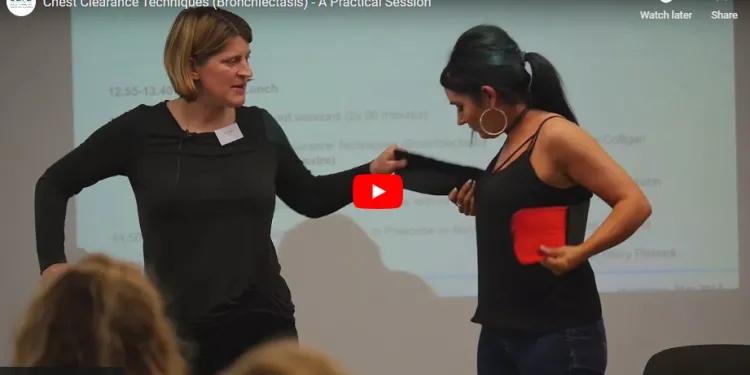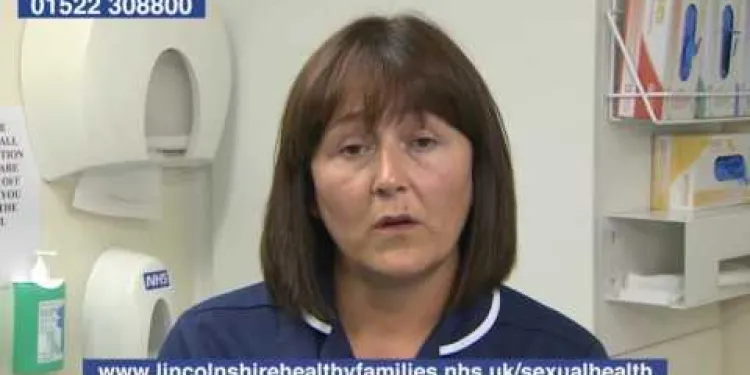
Find Help
What is 'The Clap'?
'The clap' is a colloquial term commonly used in the UK to refer to the sexually transmitted infection (STI) known as gonorrhoea. This infection is caused by the bacterium Neisseria gonorrhoeae. Gonorrhoea is primarily transmitted through sexual contact, including vaginal, anal, and oral sex. It is one of the oldest known STIs and continues to be a significant public health concern.
Symptoms of Gonorrhoea
The symptoms of gonorrhoea can vary between individuals, and some people may not experience any symptoms at all. In men, common symptoms include a burning sensation when urinating, white, yellow, or green urethral discharge, and painful or swollen testicles. Women may experience increased vaginal discharge, painful urination, vaginal bleeding between periods, and abdominal or pelvic pain. If left untreated, gonorrhoea can lead to severe health complications such as pelvic inflammatory disease in women and infertility in both men and women.
Diagnosis and Treatment
Diagnosis of gonorrhoea typically involves a physical examination and laboratory tests. These tests often include nucleic acid amplification tests (NAATs), which are highly accurate in detecting the presence of gonorrhoea bacteria. Swab samples may be taken from the infected areas, such as the throat, cervix, urethra, or rectum, depending on the site of infection.
The treatment for gonorrhoea generally involves antibiotics. Due to increasing antibiotic resistance, healthcare providers may prescribe a combination of antibiotics to effectively treat the infection. It is crucial for sexual partners to be notified, tested, and treated if necessary to prevent the spread of the infection. Patients are also advised to avoid sexual contact until they and their partners have been successfully treated and cleared of the infection.
Prevention and Public Health
Preventing gonorrhoea involves practicing safe sex, which includes using condoms consistently and correctly during sexual activity. Regular STI screenings are also recommended for sexually active individuals, as they can help in early detection and treatment, reducing the risk of complications and transmission to others.
Public health efforts in the UK focus on education, awareness, and accessible healthcare services to reduce the incidence of gonorrhoea. These efforts include promoting safer sexual practices, providing information on STIs, and ensuring that testing and treatment services are available and affordable for everyone. As antibiotic resistance continues to be a challenge, public health initiatives are also directed towards research and development of new treatments.
Conclusion
While gonorrhoea, or 'the clap', can pose serious health risks, it is preventable and treatable. Awareness and education about the symptoms, transmission, and prevention methods are essential in combating this STI. By practicing safe sex and seeking timely medical advice, individuals can protect themselves and contribute to the broader public health effort to control and eventually eliminate this infection.
What is 'The Clap'?
'The Clap' is a common name for an infection called gonorrhoea. It is a type of infection that people can get through sex. This includes vaginal, anal, and oral sex. The infection is caused by a tiny germ called Neisseria gonorrhoeae. Gonorrhoea has been around for a long time and is still a big health concern today.
Symptoms of Gonorrhoea
Gonorrhoea symptoms can be different for each person. Some people might not have any symptoms. In men, symptoms can be: burning feeling when peeing, white, yellow, or green liquid coming out from the penis, and painful or swollen testicles. In women, symptoms can be: more liquid than usual from the vagina, pain when peeing, bleeding between periods, and pain in the belly area. If gonorrhoea is not treated, it can cause serious health problems. Women can get pelvic inflammatory disease, and both men and women can become unable to have children.
Diagnosis and Treatment
To find out if someone has gonorrhoea, doctors will do a body check and take samples. They will use tests to see if the gonorrhoea germs are there. Doctors may take swabs from places like the throat, cervix, penis, or bum to test for the infection.
The main way to treat gonorrhoea is with medicine called antibiotics. Some gonorrhoea germs are getting harder to kill, so doctors might give more than one antibiotic. It is important to tell anyone you have had sex with to get tested and treated too. This stops the infection from spreading. People should not have sex until they and their partners are treated and free from the infection.
Prevention and Public Health
To stop gonorrhoea, it is important to practice safe sex. This means using condoms the right way every time you have sex. People who have sex should get regular health checks to catch gonorrhoea early and start treatment quickly. This helps to stop the infection from spreading and causing other problems.
In the UK, health groups work to teach people about gonorrhoea and how to stay safe. They give out information, promote safer sex, and make sure people can get tested and treated easily. As some gonorrhoea germs are getting stronger, health groups are also trying to find new treatments.
Conclusion
Even though 'The Clap', or gonorrhoea, can be serious, it can be stopped and treated. Knowing the symptoms, how it spreads, and how to prevent it helps fight this infection. By practicing safe sex and going to the doctor if needed, people can protect themselves and help stop the infection from spreading. This is good for their health and for everyone’s well-being.
Frequently Asked Questions
What is 'the clap'?
'The clap' is a slang term for the sexually transmitted infection gonorrhea.
What causes 'the clap'?
'The clap' is caused by the bacterium Neisseria gonorrhoeae.
How is 'the clap' spread?
'The clap' is spread through sexual contact with an infected person's genitals, throat, or rectum.
What are the symptoms of 'the clap'?
Symptoms can include a burning sensation when urinating, discharge from the penis or vagina, and in some cases, sore throat or rectal pain.
Can 'the clap' be asymptomatic?
Yes, many people with 'the clap' do not experience any noticeable symptoms.
How is 'the clap' diagnosed?
'The clap' can be diagnosed through laboratory tests of urine samples or swabs from potentially infected areas.
How is 'the clap' treated?
'The clap' is typically treated with antibiotics prescribed by a healthcare provider.
Can 'the clap' be cured?
Yes, with appropriate antibiotic treatment, 'the clap' can usually be cured.
Can you get 'the clap' more than once?
Yes, it's possible to be reinfected with 'the clap' after being treated if exposed again.
What happens if 'the clap' is left untreated?
Untreated 'the clap' can lead to serious health problems, including pelvic inflammatory disease in women and infertility in both men and women.
Is 'the clap' common?
Yes, gonorrhea is one of the most common sexually transmitted infections worldwide.
Can 'the clap' affect pregnancy?
Yes, 'the clap' can cause complications during pregnancy and can be transmitted to the baby during childbirth.
What are the complications of 'the clap' in men?
In men, 'the clap' can cause epididymitis and, in rare cases, infertility.
Is there a vaccine for 'the clap'?
Currently, there is no vaccine available to prevent 'the clap'.
How can 'the clap' be prevented?
Practicing safe sex by using condoms and having regular screenings if sexually active can help prevent 'the clap'.
Can oral sex transmit 'the clap'?
Yes, oral sex can transmit 'the clap' if there is contact with an infected person's genitals or throat.
Can 'the clap' affect areas other than the genitals?
Yes, 'the clap' can affect the throat and rectum as well.
How soon do symptoms of 'the clap' appear?
Symptoms typically appear within 2 to 14 days after exposure, if they appear at all.
Are there drug-resistant strains of 'the clap'?
Yes, there have been increasing reports of strains of 'the clap' that are resistant to certain antibiotics, making treatment more challenging.
Is 'the clap' more common in any specific age group?
'The clap' is most common among sexually active young adults, particularly those aged 15 to 24 years.
What is 'the clap'?
'The clap' is a nickname for an illness called gonorrhea. This illness is caused by germs.
If you think you have it, you should see a doctor. The doctor can give you medicine to help you get better.
It is important to ask a trusted adult or a doctor if you have questions.
Using a picture or video about staying healthy can help you understand better.
'The clap' is a nickname for a disease called gonorrhea. It spreads through sex.
What causes 'the clap'?
'The clap' is a type of illness. It is also called gonorrhea.
'The clap' is caused by germs. These germs spread from one person to another.
The germs can spread when people have close contact. This means kissing or touching other people's private parts.
If you want to learn more, you can talk to a doctor. Doctors can help explain things.
Tools like pictures or videos can also help you understand better.
'The clap' is an illness caused by a type of germ called Neisseria gonorrhoeae.
How does 'the clap' spread?
'The clap' is another name for a sickness. It spreads during close contact.
You can catch 'the clap' by:
- Having sex with someone who has 'the clap'.
- Sharing things like towels or clothes.
To keep safe, you can:
- Use condoms when having sex.
- Wash hands well.
- Use your own towels and clothes.
If you think you might have 'the clap', talk to a doctor. They can help you get better.
'The clap' is an illness you can get from having sex with someone who has it. It can spread by touching their private parts, throat, or bottom.
What signs show you have 'the clap'?
'The clap' is also called gonorrhea. It is a sickness you can catch. Here are some signs that you might have it:
- It hurts when you pee.
- You see pus or strange fluid coming from private parts.
- Your private parts feel itchy or sore.
If you think you have these signs, ask a doctor for help.
To read better, try using:
- A ruler or finger to follow along the lines.
- Text-to-speech apps to listen as you read.
You might feel a burning feeling when you pee. You could also have some fluid coming out of your private parts.
Some people might get a sore throat or feel pain in their bottom.
If you're worried, talk to a doctor. They can help you.
Can someone have 'the clap' without knowing it?
'The clap' is another name for a sickness called gonorrhea (say: gah-nuh-REE-uh).
You can have 'the clap' and not feel sick or show signs. This is called being "asymptomatic."
It's important to see a doctor if you think you might have it, even if you feel okay.
Using a picture chart or talking with someone you trust can help you understand more.
Yes, lots of people with 'the clap' do not feel sick at all.
How do doctors know if someone has 'the clap'?
You can find out if you have 'the clap' by doing some tests. Doctors can test your pee or take a small sample from the area that might be sick.
How do you treat 'the clap'?
'The clap' is another name for a sickness you get from germs. You can usually get better with special medicine from a doctor called antibiotics.
Can 'the clap' be cured?
'The clap' is a nickname for a sickness called gonorrhea.
Yes, 'the clap' can be cured. Doctors give you medicine to make it go away.
If you think you have 'the clap', it is important to see a doctor. They can help you.
Here are some tools that can help you:
- Ask a grown-up to go with you to the doctor.
- Write down questions you want to ask the doctor.
- Listen carefully to what the doctor says.
Yes, the doctor can give you medicine to make 'the clap' go away. It is important to see a doctor if you think you have it.
Can you get 'the clap' again?
Yes, you can get 'the clap' again. 'The clap' is another name for an infection called gonorrhea. If you get better from gonorrhea, you can still catch it again if you are not careful.
Here are some tips to help you stay safe:
- Use a condom when you have sex. Condoms can help stop infections.
- Get tested if you think you might have an infection.
- If you have an infection, get medicine from the doctor.
If you find reading hard, you can ask someone to read with you or use tools like audiobooks to help you understand better.
Yes, you can catch 'the clap' again even after it has been treated if you come into contact with it once more.
What happens if 'the clap' is not treated?
'The clap' is another name for an illness called gonorrhea. It is important to see a doctor if you think you have it.
If gonorrhea is not treated:
- You might feel more pain.
- You could get other health problems.
It is a good idea to ask a doctor or nurse for help. They can give you medicine to feel better.
You can use simple tools to help understand better, like:
- Pictures about gonorrhea.
- Videos that explain what it is.
If you don't treat 'the clap', it can cause big health problems. For women, it can hurt the inside parts where babies grow, called pelvic inflammatory disease. For both men and women, it can make it hard to have babies later, which means infertility.
Is 'the clap' common?
'The clap' is a name for an illness called gonorrhea. It is something that people can catch. It is common in many places.
Sometimes, 'the clap' does not have any signs, so people might not know they have it. This is why it is important to go to the doctor for check-ups.
If someone thinks they might have 'the clap', they should see a doctor. Doctors can help and give medicine to make it better.
Using condoms when having sex can help stop 'the clap' from spreading.
If reading is hard, you can ask for help from a friend, family member, or use tools like text-to-speech to listen to the information.
Yes, gonorrhea is a very common sickness that you can get from having sex.
Can you have a healthy baby if you have 'the clap'?
'The clap' is a sickness called gonorrhea. It is an illness you can get from another person.
If you are pregnant and have 'the clap,' it can make it harder to have a healthy baby.
Here are some ways to get help:
- Talk to a doctor or nurse. They can help you feel better.
- Use medicine to make the sickness go away.
- Take care of your body during pregnancy. Eat healthy food and rest.
Always get checked by a doctor to keep you and the baby safe.
Yes, 'the clap' can cause problems when you are having a baby. It can also be passed to the baby when the baby is being born.
What problems can 'the clap' cause for men?
In men, 'the clap' can make a part of the testicle sore. Sometimes, this can make it hard to have babies.
Is there a vaccine for 'the clap'?
'The clap' is another name for a sickness. It's a disease called gonorrhea. Doctors can make you better with medicine.
Right now, there is no shot to stop 'the clap'. Doctors are working hard to create one.
If you don't want to catch 'the clap', here are some tips:
- Always use a condom when having sex.
- Ask your doctor about regular health check-ups.
Talk to your doctor if you have more questions.
There is no shot to stop 'the clap' right now.
How can people stop getting 'the clap'?
Use condoms when you have sex. This helps keep you safe from 'the clap'.
If you have sex, see a doctor often. This helps catch any problems early.
Can you get 'the clap' from oral sex?
'The clap' is another name for a sickness called gonorrhea. You can get it if you have sex. This includes oral sex, which means using the mouth on private parts. It's important to be safe. Use a condom or dental dam to help stop the spread of germs.
Yes, you can get 'the clap' from oral sex. This can happen if you touch the private parts or throat of someone who is infected.
Can 'the clap' affect other parts of the body?
'The clap' is another name for an illness called gonorrhea. It is an infection that usually affects private parts. But gonorrhea can also affect other body parts like the throat and eyes. If you think you have it, talk to a doctor. Use medicines and see a doctor to get better.
Things that can help:
- Talk to a doctor for help.
- Follow doctor's advice for medicine.
- Use pictures or videos to learn more.
Yes, 'the clap' can make your throat and bottom sick too.
When do signs of 'the clap' show up?
If you get sick, it usually happens 2 to 14 days after you catch the germs.
Can 'the clap' be hard to treat with medicine?
Some germs that cause 'the clap' might not go away with certain medicines. This means they are strong against the medicine. Doctors need to use different medicines to help those who get strong germs.
Using simple words and pictures can help explain these ideas better. You can ask a doctor or nurse if you have questions.
Yes, there are more reports of some types of 'the clap' that don't get better with some medicines. This makes it harder to treat.
Do people of a certain age get 'the clap' more often?
'The clap' is an illness. It is most common in young people who have sex. This usually includes those who are 15 to 24 years old.
Useful Links
Have you found an error, or do you have a link or some information you would like to share? Please let us know using the form below.
-->
This website offers general information and is not a substitute for professional advice.
Always seek guidance from qualified professionals.
If you have any medical concerns or need urgent help, contact a healthcare professional or emergency services immediately.
Some of this content was generated with AI assistance. We’ve done our best to keep it accurate, helpful, and human-friendly.
- Ergsy carfully checks the information in the videos we provide here.
- Videos shown by Youtube after a video has completed, have NOT been reviewed by ERGSY.
- To view, click the arrow in centre of video.
- Most of the videos you find here will have subtitles and/or closed captions available.
- You may need to turn these on, and choose your preferred language.
- Go to the video you'd like to watch.
- If closed captions (CC) are available, settings will be visible on the bottom right of the video player.
- To turn on Captions, click settings .
- To turn off Captions, click settings again.





